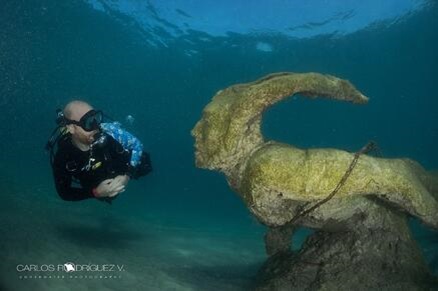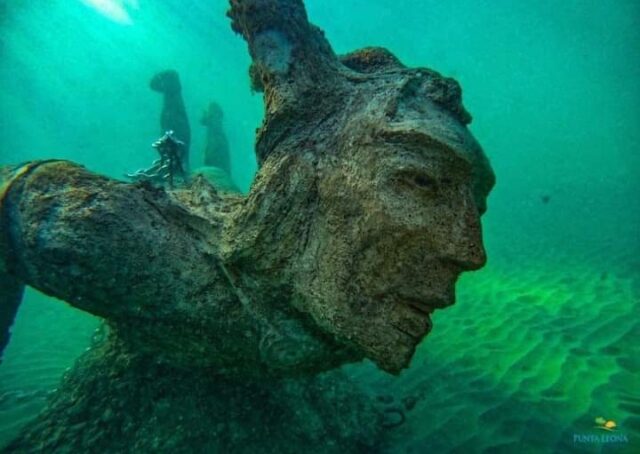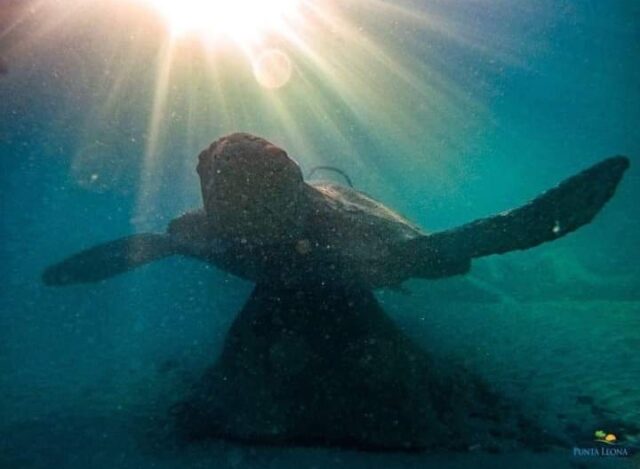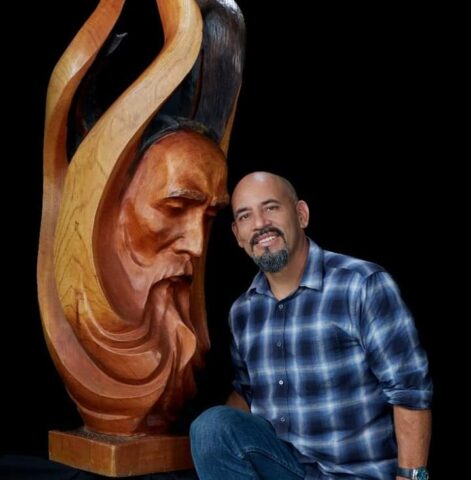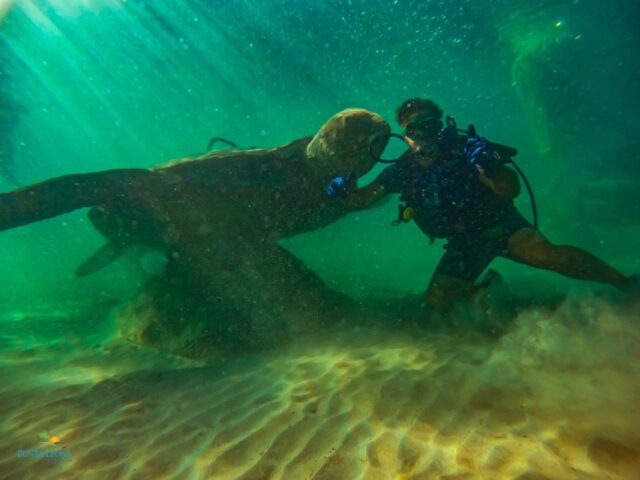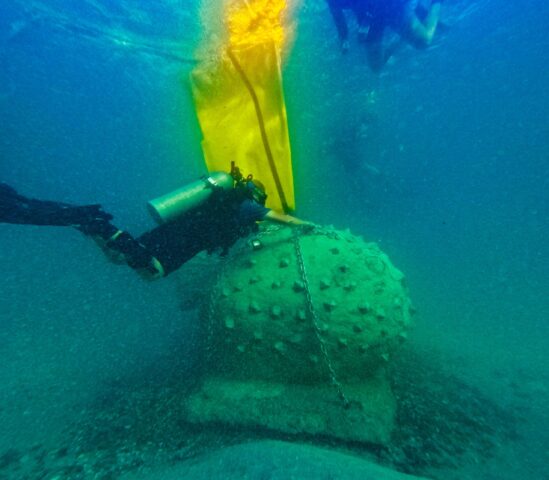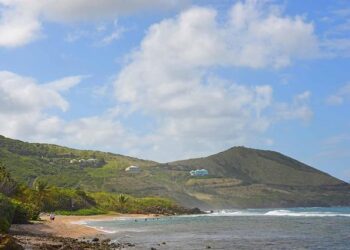The Underwater Museum of Punta Leona, in the Central Pacific, specifically in the province of Puntarenas, is a new project of commitment in the country with the oceans, it is also the first in Central America and joins the list of the world.
The idea comes mainly from Hotel Punta Leona.
Bringing people closer to environmental conservation through art
The main objective of the museum created in 2020 in Playa Blanca, is to conserve and protect the marine biodiversity of Costa Rica and raise awareness about the importance of coral reefs and other marine species.
Without a doubt, it was a fascinating idea to incorporate the sculptures into the regenerative reef project, since these, like the bell reefs, function as a place of shelter, feeding, and reproduction for more than 50 marine species, including fish, crustaceans, mollusks and more. The purpose is to bring people closer to environmental conservation through art.
In the early days of the museum, 30 “reefball” (artificial reef modules made of concrete that mimic the structure and function of a natural reef) or bell-like structures were placed.
The museum currently consists of 9 concrete sculptures that have been submerged in the ocean, to name a few: a Cacique Garabito sculpture, another of the Lora turtle, a manta ray, an octopus guarding a treasure chest, an inflated puffer fish and a parrot fish which is the one to whom the white sands of Playa Blanca are owed. Each of the sculptures weighs over a ton and measures approximately 3 meters in length.
Although there are already 9 sculptures in 2024, the initial idea of the Corporate Relations manager and project director, CĂ©sar Vargas, was to reach 20, can you imagine?
Also, today there are 75 bell-shaped artificial reefs.
It is known that at a depth of two meters at low tide and about five at high tide, the sculptures can be explored by divers and snorkelers. It is recommended that it be during the summer season, between December to May when the water is quite clear in this sector of the Central Pacific.
The sculptures are made of a material that favors the formation of coral, which further contributes to the preservation of the reefs.
The artist with talented and dedicated hands
The sculptures of the Underwater Museum were created by Fabio Brenes Morales, an artist from Capellades, Cartago. He is known for works developed almost always in wood and stone, using figurative elements of nature.
The sculptor has almost 40 years of experience and has shown his talent worldwide in countries such as France, Spain, Germany, Switzerland, Italy, Mexico, and Panama.
The pieces, weighing approximately 1 ton, were made with construction rebar, sieve, and a mixture of fibrocement, that is, they created a mixture resistant to salt water and at the same time, compatible with the ecosystem.
During the creation of the sculptures, Brenes collaborated with students from James Madison University in the United States, who annually visited Punta Leona to develop a particular project, and also with the labor of the Hotel’s collaborators.
The completion time of each work was between 15 and 17 days.
Underwater museums in other countries
There are underwater museums in other countries, in case you are a lover of the aquatic world, we are going to mention some of them, each one has a fascinating history:
– Mexico has several underwater museums in different locations. Highlights include the Underwater Museum of Art (MUSA) in Cancun, the Underwater Museum of Art in Isla Mujeres, and the Underwater Museum in Cozumel.
– In the United States, there are underwater museums such as the National Museum of Submerged Childhood in Florida and the USS Kittiwake Underwater Museum in the Cayman Islands.
– Spain: Spain is home to one of the most famous underwater museums in the world, the Museo Atlántico in Lanzarote, Canary Islands.
– In Grenada, there is the Underwater Museum of Greece, where several submerged statues can be found.
– In the Philippines, there is the Moalboal Underwater Museum, which features submerged statues and recreational structures.
As I mentioned before, these are just a few examples, but there are other countries, such as Australia, Thailand, Indonesia, Egypt, and the Bahamas, that also have underwater museums.
The Costa Rica Underwater Museum is accessible to certified divers and offers a unique experience for diving enthusiasts. Besides being a tourist attraction, the museum is also used for scientific research and environmental education. Studies are conducted on the growth of corals and their relationship with the sculptures, as well as on the behavior of the marine species that inhabit the area.
– Advertisement –
Source link : http://www.bing.com/news/apiclick.aspx?ref=FexRss&aid=&tid=66b06f4515e942a2a5676c7078ef5742&url=https%3A%2F%2Fthecostaricanews.com%2Fwhat-is-known-about-costa-ricas-underwater-museum%2F&c=6759674639543627913&mkt=en-us
Author :
Publish date : 2024-08-03 11:59:00
Copyright for syndicated content belongs to the linked Source.


